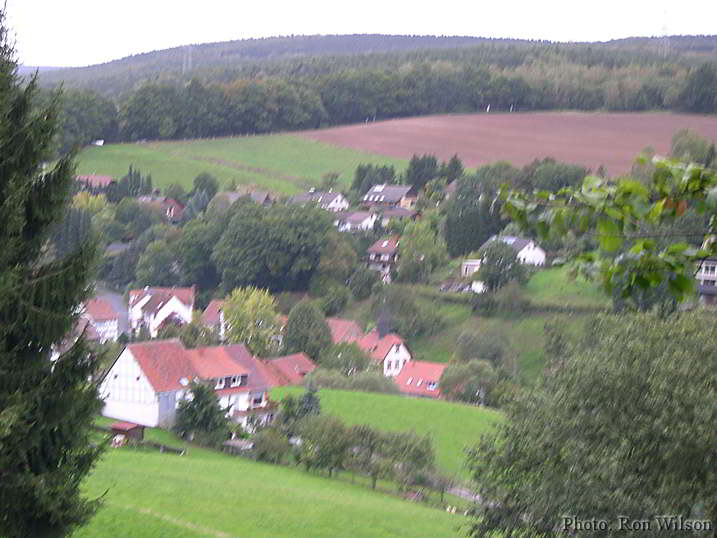The following from Ron Wilson
A number or things have happened (procrastination being one) to delay
the presentation of this page.
I think the best opening comments are in his email to me some
time ago:
The following from Ron Wilson
A number or things have happened (procrastination being one) to delay
the presentation of this page.
I think the best opening comments are in his email to me some
time ago:
Bill:
This is a wonderful web site. I visited Rothwesten in September of 2004, but it was a Sunday and the guards would not let me in. I talked to some German reservists, in front of the old theater. The gate is now next to the old security building, leaving the theater and HQ building outside. I drove around the outside and got a few pictures. I'll be sending them as separate attachment as the files are quite large.
Some pictures are of the village down the hill from Rothwesten front entrance, but don't remember the name, so I just called it the neighborhood. If you can give it a name, I would appreciate the info.
Gunpost is now home to several wind generators. The only buildings that remain are the guard shack, and the old day room. The operations building is gone, but there is a manure pile on the concrete slab. I thought that was appropriate.
I also drove to St Andreasburg to see if I could find the house where the men were billeted, but since I was only there 2 times investigating a motor vehicle accident, I could not find it.
After 46 years, things change, and memories fade. I even had trouble finding the Rothwesten base. The roads were all changed, and I had no map. It appeared that the base was home to a German antiaircraft battalion.
Keep up the good work. I liked the message forum that was previously on the web site. Through that, I located my German girlfriend of 45 years ago. That too is quite a story.
The web site seems to lack input by former officers. Is that coincidence?
Keep up the good work,
(Lt.)Ron Wilson 615 AC&W 11/55 to summer '56--601 AC&W '56
to
Feb '58.
Louis Spohr
(born April 5, 1784, Brunswick, Brunswick—died Oct. 22, 1859,
Kassel, Hesse) German composer and violinist. He was kapellmeister in
Kassel
from 1822 and remained there the rest of his life, eventually directing
all the city's music. Highly prolific, he wrote 15 violin concertos, 4
clarinet concertos, many operas (including Jessonda, 1823), 9
symphonies
(including The Consecration of Sound, 1832), and chamber music. Highly
respected as a performer and composer in the 19th century, he has since
been largely neglected.
![]()

Knickhagen